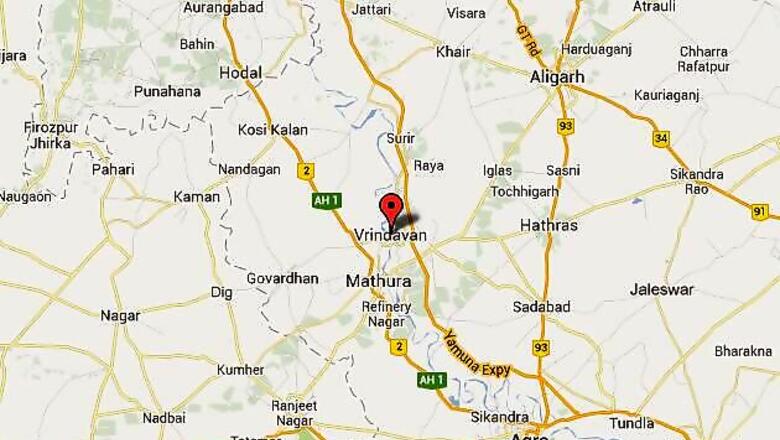
views
As if starting a fresh chapter in the history of social reform in India, the widows of Vrindavan in Uttar Pradesh on Thursday lit Diwali lamps, symbolising a new surge of empowerment of poor and abondoned women.
More than a 1,000 widows, most of them aged 70 years or above, who have long lived a life of seclusion and suffered ostracism as traditional beliefs hold them to be inauspicious, joined the festivities around Diwali, lighting colourful lamps and "phuljadis," with child-like delight, and spreading amusement and joy to hundreds of local people at the century-old Meerasahabhagini Ashram in this holy town of Vrindavan.
Women in all five widow's shelter homes in Vrindavan joined the celebrations, which are set to continue until November 3. The celebrations are being conducted with the initiative of non-governmental organisation Sulabh International.
"The old girls were excited, and looked forward to the celebrations. They designed their own rangolis and painted the diyas themselves. In the afternoon, they went shopping at the market near the ISKCON temple, buying sarees and shawls for the festival," Madan Jha, who works with Sulabh International said.
Jha said the widows made merry, setting off fire-crackers and dancing and singing bhajans and hit songs from old Bengali movies.
After the Supreme Court, during a hearing last year, took strong exception to the shoddy manner in which the bodies of dead widows who were residents of government-run shelter homes were disposed of, Sulabh International intervened to offer the widows a life of dignity.
In the past year, the widows have seen a sea change in the quality of their lives, receiving a Rs.2,000-per-month pension each, and taking part in festivities.
Earlier this year, some widows joined Holi celebrations. During Durga puja, some of them were taken to Kolkata to join festivities in the West Bengal capital.
"The focus now will be on imparting education to them. Some education and training could go a long way in giving them greater confidence, even at an advanced age," Sulabh founder and chief Bindeshwar Pathak said.
Arrangements have been made to impart education to the widows in Hindi, Bengali and English, and teachers have been appointed for the purpose. The widows will also be taught to make garlands and incense sticks, besides also receiving training in sewing and embroidery.
The pension from Sulabh International helps the widows take care of their needs without recourse to seeking alms or receiving small sums of money in exchange for singing at the numerous temples in Vrindavan.
The widows now even take part in "ghazals", "kirtans" and "bhajan sandhyas" of their choice, and watch serials on TV sets provided to them by the NGO.
Sulabh International has also made available ambulances for the use of the widow shelter homes. Regular medical check-ups are also organised for the women. A dignified cremation is also given to the women who die in these homes, with full rites and religious rituals.
Much stigma traditionally attaches to the widow in India, who is considered an ill omen and not allowed to be present at auspicious occasions.
Traditionally, widows have been denied ornaments and colourful sarees. They are also forbidden non-vegetarian food, garlic and onions.
Many of women at the shelter homes in Vrindavan are old and infirm, and considered burdens by families, many of whom have abandoned them.




















Comments
0 comment